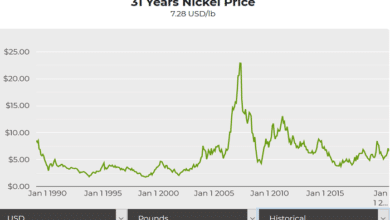Forex Factor: Unlocking Success in the Currency Market

Introduction
The Forex Factor is a crucial concept for anyone involved in the currency trading market. Understanding the Forex Factor can significantly enhance your trading strategies, helping you navigate the complexities of the foreign exchange market with greater confidence and success. This guide will delve into the essential elements of the Forex Factor, providing you with the knowledge and tools needed to thrive in forex trading.
What is the Forex Factor?
The Forex Factor refers to the various elements that influence currency exchange rates and market movements. These factors include economic indicators, geopolitical events, market sentiment, and technical analysis. By understanding the Forex Factor, traders can make more informed decisions and optimize their trading strategies.
The Role of Economic Indicators
Economic indicators play a significant role in the Forex Factor. Data such as GDP growth, employment rates, inflation, and interest rates can impact currency values. For example, a higher-than-expected GDP growth rate in a country can lead to an appreciation of its currency. Keeping track of these indicators is essential for effective forex trading.
Geopolitical Events and Their Impact
Geopolitical events are another critical aspect of the Forex Factor. Political instability, elections, trade negotiations, and conflicts can cause significant fluctuations in currency markets. Understanding how these events influence the Forex Factor can help traders anticipate market movements and adjust their strategies accordingly.
Market Sentiment and Its Influence
Market sentiment, or the overall mood of investors, is a powerful component of the Forex Factor. Positive sentiment can drive currency values up, while negative sentiment can lead to declines. Analyzing market sentiment through tools like the Commitment of Traders (COT) report and sentiment indicators can provide valuable insights for forex traders.
Technical Analysis in Forex Trading
Technical analysis is a key part of the Forex Factor, involving the study of historical price movements and patterns to predict future trends. Tools such as moving averages, support and resistance levels, and candlestick patterns help traders make informed decisions based on the Forex Factor.
The Importance of Fundamental Analysis
Fundamental analysis, which involves evaluating a country’s economic health and financial stability, is crucial in understanding the Forex Factor. This analysis includes examining factors such as interest rates, government policies, and economic reports to determine the intrinsic value of a currency.
Developing a Forex Trading Strategy
A robust trading strategy is essential for leveraging the Forex Factor effectively. This strategy should incorporate both technical and fundamental analysis, risk management techniques, and a clear understanding of market psychology. By developing a comprehensive strategy, traders can better navigate the Forex Factor and achieve consistent success.
Risk Management in Forex Trading
Risk management is a critical component of the Forex Factor. Effective risk management strategies, such as setting stop-loss orders, diversifying your portfolio, and limiting leverage, can protect traders from significant losses and ensure long-term profitability in the forex market.
The Role of Technology in Forex Trading
Technology has revolutionized forex trading, making it easier for traders to analyze the Forex Factor and execute trades. Advanced trading platforms, algorithmic trading, and mobile apps provide traders with real-time data and tools to enhance their trading experience and capitalize on the Forex Factor.
Psychological Factors in Forex Trading
Psychological factors are an often-overlooked aspect of the Forex Factor. Emotions such as fear and greed can significantly impact trading decisions. Developing a disciplined mindset and adhering to a well-defined trading plan can help traders manage these psychological challenges and stay focused on their goals.
Education and Continuous Learning
Continuous education is vital for mastering the Forex Factor. Staying updated with market news, attending webinars, reading trading books, and participating in online courses can enhance your understanding of the Forex Factor and improve your trading skills.
Choosing the Right Forex Broker
Selecting a reliable forex broker is crucial for effectively leveraging the Forex Factor. Factors to consider include the broker’s reputation, trading platforms, customer support, and regulatory compliance. A good broker can provide the tools and resources necessary to navigate the Forex Factor successfully.
Conclusion
Forex Factor is essential for success in the currency trading market. By comprehensively analyzing economic indicators, geopolitical events, market sentiment, and utilizing both technical and fundamental analysis, traders can make informed decisions and optimize their trading strategies. Continuous education, effective risk management, and psychological discipline are key components of mastering the Forex Factor.
FAQs
1. What is the Forex Factor?
The Forex Factor refers to the various elements that influence currency exchange rates and market movements, including economic indicators, geopolitical events, market sentiment, and technical analysis.
2. How do economic indicators affect the Forex Factor?
Economic indicators such as GDP growth, employment rates, inflation, and interest rates impact currency values by reflecting a country’s economic health and stability.
3. What role do geopolitical events play in the Forex Factor?
Geopolitical events, including political instability, elections, trade negotiations, and conflicts, can cause significant fluctuations in currency markets, influencing the Forex Factor.
4. How can market sentiment influence forex trading?
Market sentiment, or the overall mood of investors, can drive currency values up or down. Analyzing market sentiment provides valuable insights for making informed trading decisions.
5. Why is risk management important in forex trading?
Risk management is crucial for protecting traders from significant losses and ensuring long-term profitability. Effective strategies include setting stop-loss orders, diversifying portfolios, and limiting leverage.





